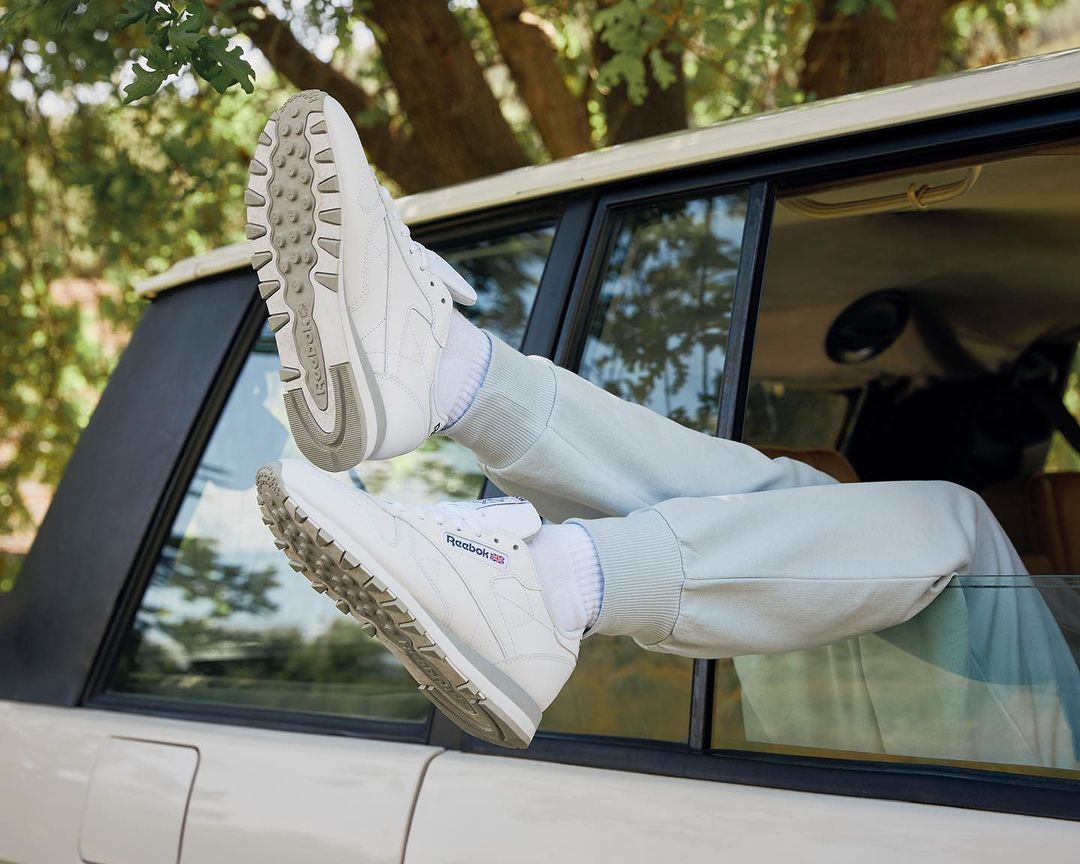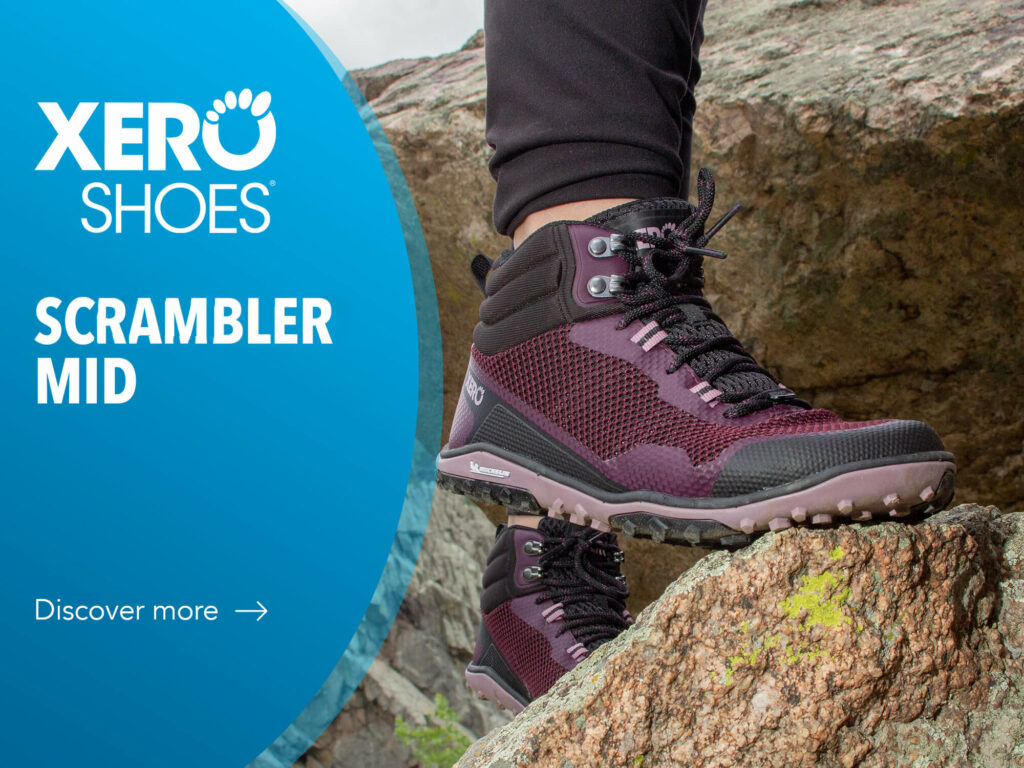Generally, when people talk about being vegan, they are referring to a diet that excludes meat, eggs, dairy and any other food derived from animals.
But what does vegan footwear mean?
These shoes are made without any involvement of animals during the production process. Vegan shoes are created exclusively using materials that are not of animal origin and not tested on animals.
This means that no materials such as leather, wool, fur or certain glues are used. As technology advances, more and more shoes are being made from synthetic or plant-based materials, offering a sustainable, animal-friendly alternative.
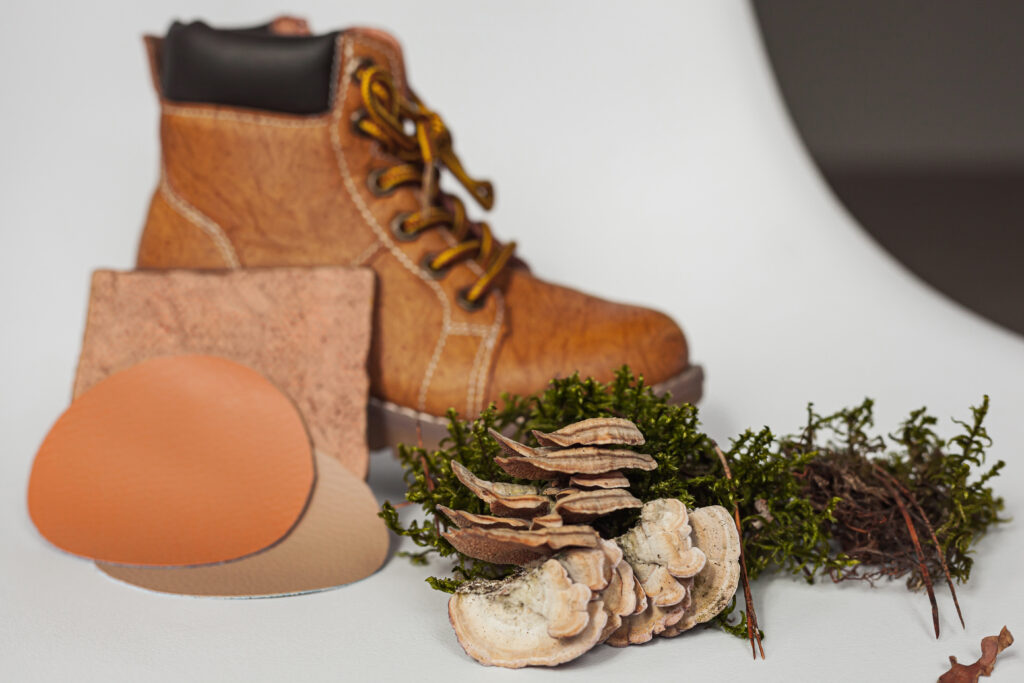
Vegan shoes are a popular choice among environmentally conscious consumers. Their aim is to provide consumers with an ethical and cruelty-free option for footwear. Many brands clearly label their shoes with the PETA-approved Vegan or Vegan Society logo.
Choosing this type of footwear can help promote a more sustainable and ethical fashion industry in general.
What materials can be used to create a vegan shoe?
There are various materials of plant origin to replace those of animal origin.
Cork
A material that has recently become very common is cork, which offers comfort and shock absorption. Cork also insulates against heat and noise and has water-repellent properties. In addition, the cork layer grows back on trees and can therefore be harvested countless times without causing damage. In fact, a single tree can provide 100 to 200 kg of cork.
For these reasons, it is a 100% sustainable material and can be found for example in the famous Birkenstock shoes, for which sustainability is not a phenomenon of the moment, but an expression of a corporate stance. They use a high percentage of natural raw materials from sustainable sources, among them certainly cork, but also, for example, natural latex and jute.
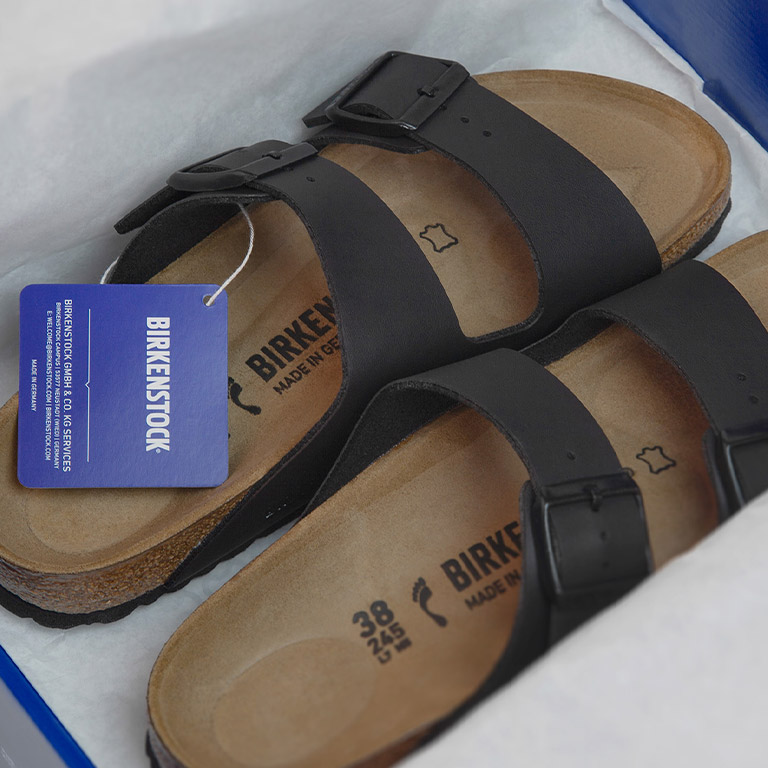
Piñatex
There is another vegan material used for making shoes that is particularly unusual because it is made from waste fruit: Piñatex. Pineapple leaves, instead of being thrown away, are processed and turned into a durable fabric.
The idea came from Spanish leather expert Carmen Hujosa, who was a consultant to the Philippine leather export industry in the 1990s. Inspired by the abundance of natural resources, including the use of plant fibres in traditional weaving, such as the delicate Barong Tagalog garments, Carmen sought to create a new ‘non-woven fabric’ that could be produced commercially, so as to have a positive social and economic impact and maintain a low environmental footprint throughout its life cycle. This is how Piñatex® was born and it is also how Carmen Hujosa founded Ananas Anam, becoming an ethical entrepreneur.
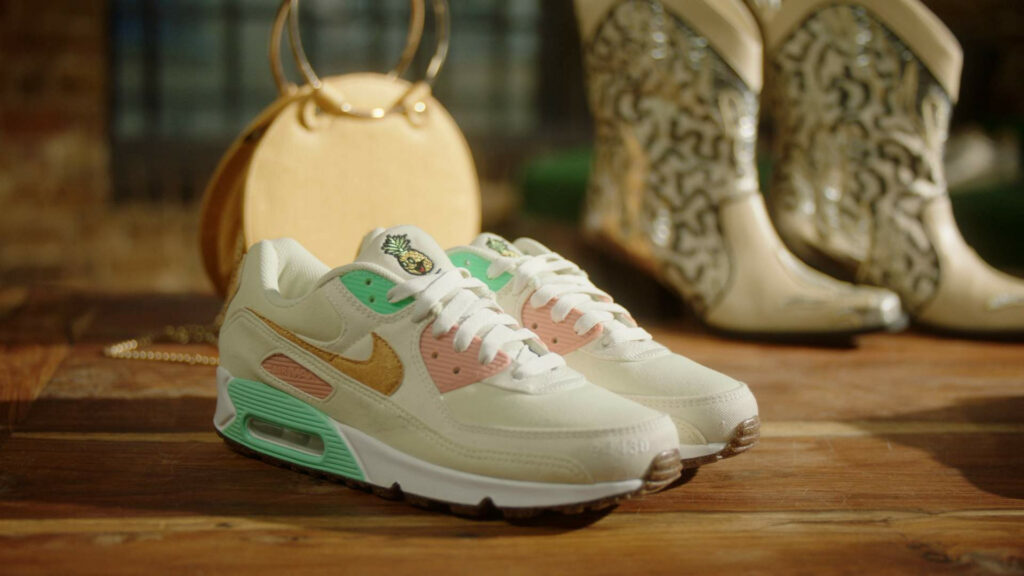
Photo credit: Ananas Anam website
As mentioned earlier, the material is made from pineapple leaf fibres. It contains no harmful chemicals in its production processes, its fibres are compostable and vegan, and it is an ideal alternative to animal skins and other synthetic skins on the market.
But let us now take a detailed look at the commitment and history of the Reebok brand.
The Reebok brand
In the 1980s, Reebok, rather than Nike or Adidas, dominated the American sneakers market. Founded in England in 1958 by brothers Joe and Jeff Foster, Reebok initially struggled to establish its own brand identity, but eventually found success after American outdoor wholesaler Paul Fireman acquired exclusive rights to Reebok in North America in 1979. Despite modest beginnings, Reebok’s sales skyrocketed and by the end of the decade the company became a major player in the sneaker industry.
Today, engineers at Reebok’s Innovation Lab in Boston are developing a new model of 100% sustainable shoes made from plants, aiming to make them completely biodegradable. Reebok’s ultimate goal is to make every product sustainable by 2030, following other brands that are also working to create totally eco-friendly footwear.
“Over the past few years, we’ve made great strides in making more sustainable footwear,” said Mike Andrews, Reebok’s director of advanced development and head of design and R&D for several sustainable footwear lines.
“We are really proud of our progress, but we know there is still a long way to go. At the moment, our development is focused on creating 100% plant-based, plastic-free footwear.”
Reebok’s vegan shoes
Reebok offers sustainable shoes such as the [REE]GROW line of shoes, with at least 50 per cent plant-based materials, with components such as eucalyptus mesh, natural rubber and algae blooms, and also the REE[CYCLED] line of shoes and clothes, using recycled materials such as plastic bottles, pellets and polyester thread.
The Cotton and Corn line
His first line of plant-based footwear was ‘Cotton and Corn’. Made entirely from sustainable materials, it was launched in 2017. The idea was to create a shoe from ‘things that grow’, and it went just that way: the shoe is made from organically sourced cotton, with a base of Susterra® propanediol, a non-toxic product made from corn.
The bioplastic alternative to petroleum-based rubber and foam soles helps in a small way to reduce the environmental impact of the fashion industry. Reebok has embarked on an innovative path, focusing on the use of vegetable raw materials, with a particular interest in corn. The sole is in fact made from corn, the insole is made from castor oil and the upper is woven from 100% cotton.
The Floatride Energy GROW line
While the Cotton & Corn and [REE]GROW footwear lines focused primarily on the initial part and the use of materials sourced from plants rather than oil, Reebok’s long-term goal is to create products that are sustainable at every stage of their life cycle, as well as stylish and durable.
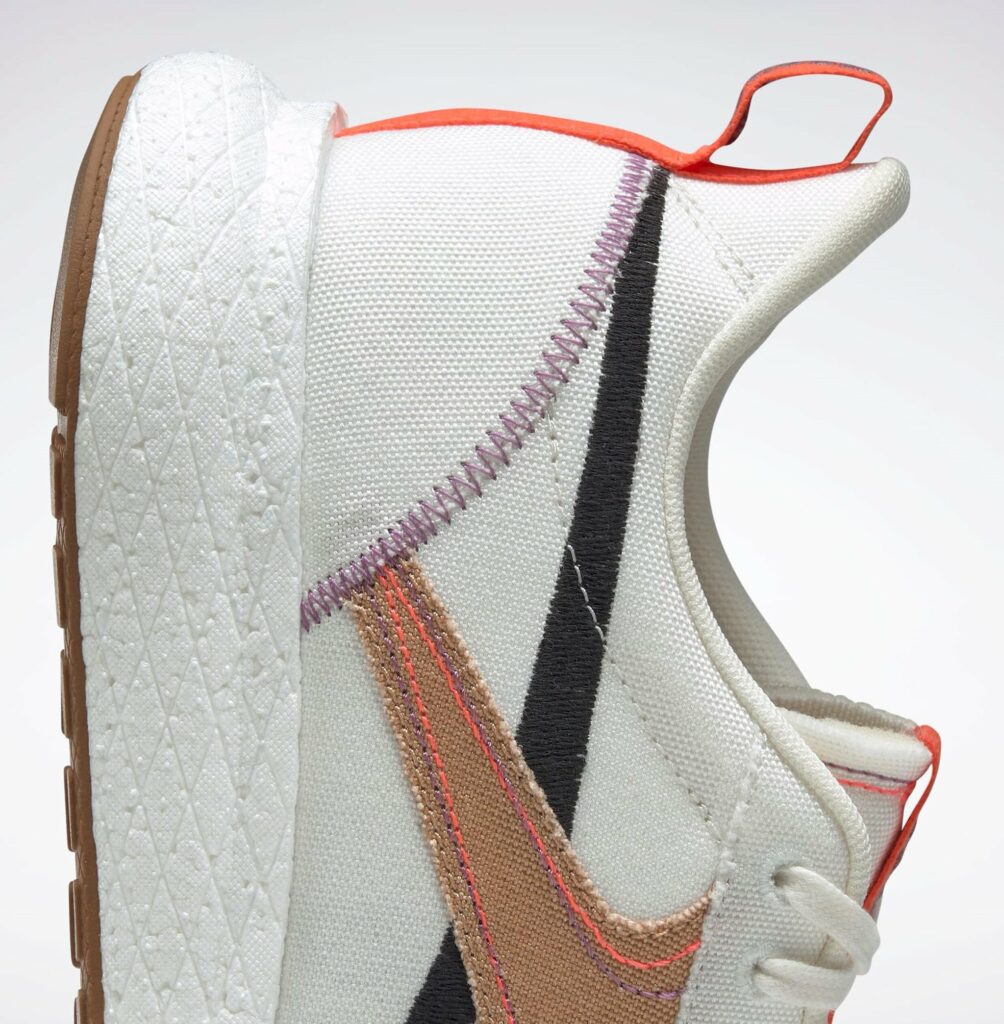
Photo credit: Reebok website
The year 2021 saw the arrival of green innovations for the brand, including the launch of the Floatride Energy GROW, a sustainable, plant-based running shoe. Made with a eucalyptus mesh upper and a cushioning midsole derived from castor oil, it offers high performance without compromising on style.
It was designed for running, but its simple design suits a variety of styles. Reebok President Matt O’Toole explained that this innovation follows the success of Cotton and Corn and represents a step towards producing high performance, fully sustainable footwear.
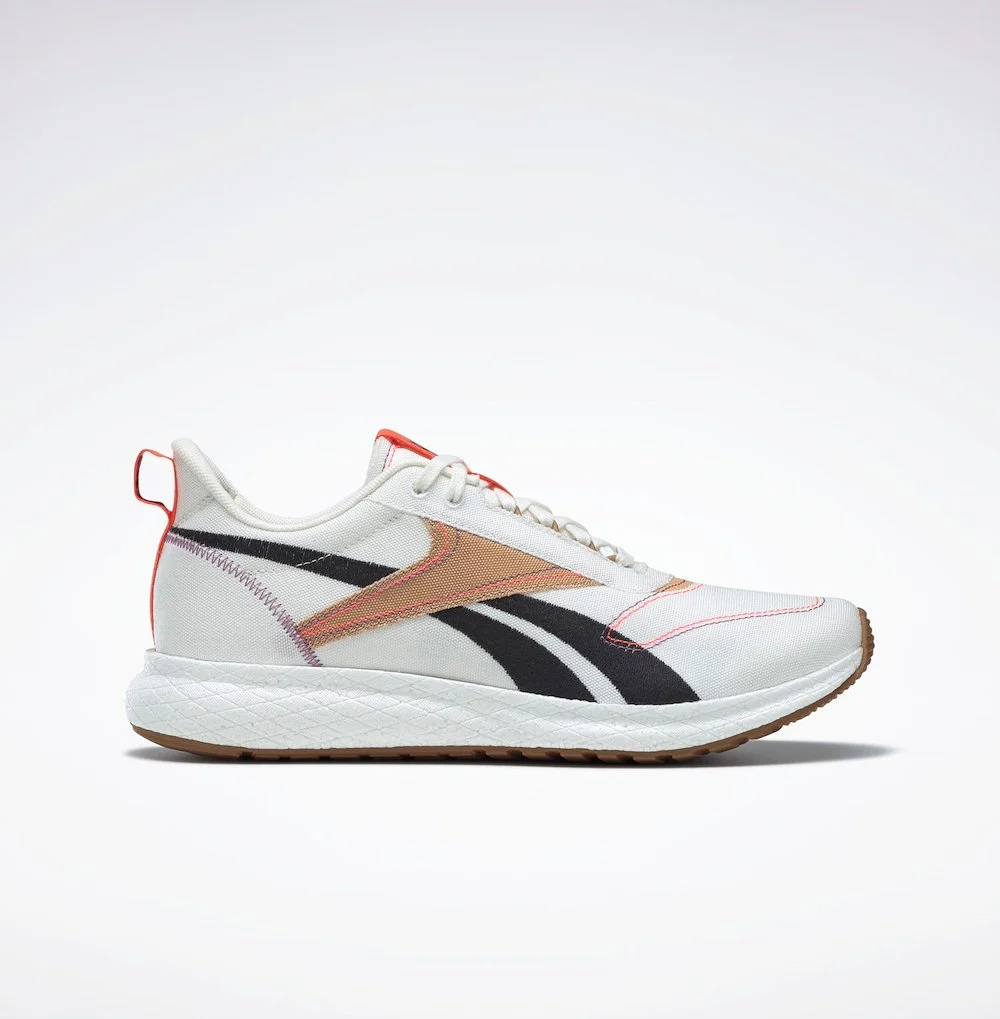
Photo credit: Reebok website
The Club C 85 Vegan line
Reebok’s Club C 85 low top trainers were originally introduced in 1985, then known as the Revenge Plus. At this time the sneaker was beginning to gain popularity both on the court and on the street.
The model was then reintroduced in 2016, renaming it the Club C 85. Since its re-introduction to the market, the Club C 85 has remained the company’s best-selling tennis shoe, and the model of choice for several collaborations. It is also a popular shoe on Instagram and Reddit, where it is often cited as one of the most versatile white shoes and a solid alternative to expensive leather trainers.
This iconic shoe has been reinvented today: the Club C 85 Vegan, featuring the use of vegan leather for a modern, more sustainable feel. Despite the change in materials, it is still a big seller today and is a mainstay of the Reebok Classics line. Its construction with an EVA foam footbed and sturdy vegan leather upper offers full support and all-day cushioning, making them ideal for long walks.
These plant-based solutions from Reebok are innovative and reflect the companies growing commitment to responding to consumer demands for greener products.
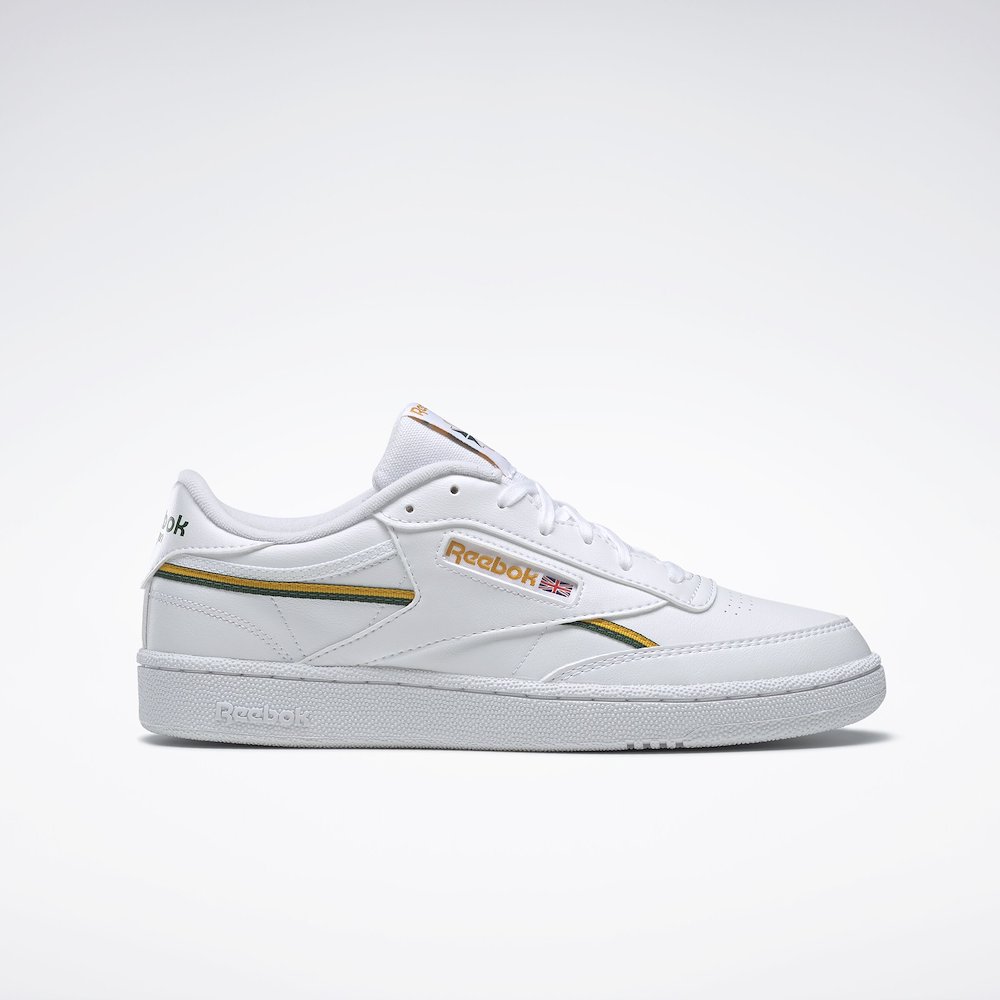
Photo credit: Reebok website
The introduction of vegan footwear also raises important questions about the responsibility of consumers to make informed choices. The increasing availability of eco-friendly options highlights the importance of an informed public committed to the fight against pollution and climate change.
Let us reflect together on the importance of our ecological footprint and the impact of our purchasing choices.
When we set out to look for a new pair of running shoes, why not consider an option that goes beyond mere comfort and performance, but also embraces the principles of sustainability?
Environmental awareness can and does guide our consumer decisions. Choosing environmentally friendly products not only benefits our conscience, but also contributes to the well-being of the planet. It is a small step in a more responsible and conscious direction that can lead to significant results in the long term.
You may also be interested in the following articles:

The revolution of recycled leather in the world of footwear: the example of Dr. Martens
Brands like Dr. Martens are driving the shift towards eco-friendly materials in the footwear industry.

Magnum Boots and Sam Foster’s heroic feat in the Run for a Reason Half Marathon in Perth
Meet Sam, the firefighter who completed the half marathon wearing a uniform, boots included!

Safety footwear focuses on comfort and sustainability
Many innovations were presented at the A+A fair in Dusseldorf, from ultra-light or hyper-comfortable soles to environmentally conscious production systems.
























